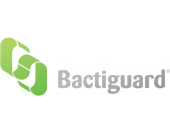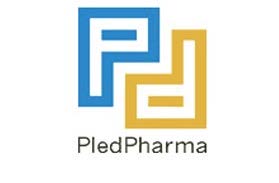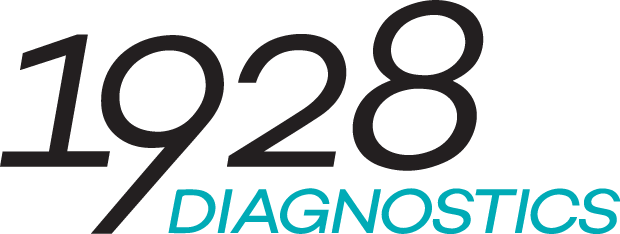COMPANY BIOS FOR THE 2015 SUMMIT
Presenting Companies Bactiguard
Kancera
Co-Diagnostics
ACCESS Health International
Glionova
PledPharma
Atlas Antibodies
Medivir
Vironova
1928 Diagnostics
Cell Machines
Enteromics
Gradientech
Immuneed
Immunovia
Infant Bacterial Therapeutics
MoreInx
Spago Nanomedical
Top of page

Bactiguard provides world-leading solutions preventing hospital-acquired infections, the 4th largest
cause of death in the western world. By using the Bactiguard technology Governments can reduce healthcare
cost, lower the use of antibiotics and save lives. The Bactiguard technology consists of an extremely thin
noble metal coating, with antimicrobial and biocompatible properties that can be used on all sorts of medical
devices. The Bactiguard coated urinary catheter has since 1995 been used by more than 110 million patients in
the US. Today Bactiguard offers a full range portfolio within infection prevention in the urinary tract,
respiratory tract and blood stream. Bactiguard is currently expanding its business activities to markets,
such as China, India, Europe, South America and the Middle East.
Learn more about www.bactiguard.se
Christian Kinch, CEO: info@bactiguard.com
Top of page
![]()
Kancera's products have the potential to generate break-through therapies based on superior potency
against and selectivity for tumors, aiming at normalizing life for cancer patients. Kancera has its drug
discovery heritage from Pharmacia Corporation and Karolinska Institutet, and delivers preclinical candidate
drugs for commercialization in partnership with international pharmaceutical companies. The company was
listed on Nasdaq First North in Stockholm 2011. Product portfolio:
- Small molecules against a truly cancer selective (onco-embryonic) tyrosine receptor kinase named ROR.
By inhibiting ROR cancer is reprogrammed to self-destroy. A small molecule candidate drug has been
selected following proven safety and efficacy in patient derived xenograft models of otherwise treatment
resistant chronic lymphocytic leukemia. Next, pancreatic adenocarcinoma and ovarial cancer are
addressed.
- Inhibitors of the metabolic enzyme PFKFB3 are developed in a structure-based design project. Recent
discovery shows that Kancera PFKFB3 inhibitors can act in synergy with radio and chemotherapy, by
inhibiting DNA repair.
- Highly iso-enzyme selective HDAC6 inhibitors are developed to achieve superior therapeutic window
and thereby fully exploit the potential of HDAC6 as mechanism to interfere with cell migration and
metastasis in both solid and hematologic cancer.
Learn more about Kancera at www.kancera.com
Top of page

Co-Diagnostics, based in Sandy, Utah, USA, is a molecular diagnostics company that develops,
manufactures and markets new, state-of-the-art diagnostic systems. Co-Diagnostics' molecular diagnostics
platform and portfolio of molecular products and tests represent a very significant technical advance in the
understanding of the molecular interactions of DNA. The Company uses highly specialized, proprietary
cooperative-theory mathematics, leading to a revolutionary leap forward in the detection of infectious diseases,
genetic disorders and other conditions. Co-Diagnostics' diagnostics systems enable very rapid, low-cost,
sophisticated molecular testing for organisms and genetic diseases. The Company's diagnostic technology
involves novel approaches to PCR primer and probe design (referred to as cooperative primers, or CoPrimers™)
that eliminate one of the most vexing issues of PCR amplification - the exponential growth of primer-dimer pairs
that interfere with identification of the target DNA. In addition its scientists have enhanced the understanding of
the mathematics of DNA test design, so as to reduce the time and cost required for test development. The result
is the highest level of specificity and sensitivity - at the lowest cost - in molecular diagnostics. The Company
combines its high-performing test with a new generation of inexpensive diagnostics machines to offer affordable
and accurate tests worldwide. CoDx™ tests are a fraction of the cost of other DNA-based tests, designed for a
new generation of affordable point-of-care diagnostic devices and compatible with many other devices, making
state-of-the-art diagnostics available anywhere in the world, including developing countries.
Learn more about Co-Diagnostics at codiagnostics.com
Top of page
ACCESS Health International is a think tank advisory group in healthcare. Their goal is to ensure access
to high quality, affordable healthcare for all, regardless of nationality or geography. ACCESS Health specializes
in knowledge transfer between health systems. A founding principle of ACCESS Health is that lessons gained
from analysis of good practice in healthcare finance and delivery systems developed by one country can be
adapted for use in others. The teams work in low-, middle-, and high-income countries in the Americas, in
central and south east Asia, in Europe, and in other parts of the world. The teams of ACCESS Health in
Sweden, the United States, China, and Singapore work together to identify good practices and innovations in
elder care. As part of their business engagement activities, ACCESS Health Singapore is launching Modern
Aging in the fall of 2015, an incubator program for entrepreneurs in the elder care sector. The program is an
initiative that inspires and empowers entrepreneurs of all ages and backgrounds to create businesses to serve the
needs of the elderly. The Modern Aging program was first launched in Sweden with funding from the Swedish
Postcode Foundation in 2013. ACCESS Health is now looking to expand its activities in elder care and is hoping
to launch new collaborative cross-country programs in 2016 and in 2017 in Sweden and abroad.
Learn more about ACCESS Health International at www.accessh.org
Top of page

Glionova AB is a privately-held development stage biopharmaceutical company based in Stockholm,
Sweden. We are dedicated to the development of innovative therapies for difficult-to-treat cancers. Our lead
product, GLN-1001, is a first-in-class, orally available oncolytic small molecule, currently being developed as a
potentially disease modifying therapy for glioblastoma, the most common and most aggressive form of primary
brain cancer. Glioblastoma, affecting some 25 000 new patients per year, is a devastating orphan disease with
marginal life expectancy and limited treatment options, necessitating the development of conceptually new
therapeutic strategies. GLN-1001 is currently in preclinical development, where it has been shown to
dramatically prolong survival in patient derived xenograft animal models of glioblastoma and to exhibit an
attractive safety profile. Glionova aims to enter into clinical trials during 2016.
Learn more about Glionova at www.glionova.com
Top of page

PledPharma is a Swedish pharmaceutical company developing new therapies for life-threatening
diseases. The company's most advanced project PledOx reduces serious side effects associated with
chemotherapy. The drug candidate Aladote is developed to reduce the risk of acute liver failure associated
with acetaminophen poisoning. The project PP-099 aims to limit the reperfusion damage to the heart muscle
following a heart attack. PledPharma's drug candidates are based on rational development of a pharmaceutical
substance used for completely different purposes, which has already been used by more than 200,000 patients.
This may limit the development risk and simplify the registration process. PledPharma (STO: PLED) is listed on
Nasdaq First.
Learn more about PledPharma http://pledpharma.se
Top of page

Atlas Antibodies develop, produce and market reagents for proteomic research. The products include antibodies and labelled and unlabeled protein fragments for both qualitative and quantitative analysis of human proteins. The goal is to offer reagents targeting all human proteins and with more than 55,000 products, over 80% of all human proteins are currently covered. New products are continuously developed and added to the product catalogue. The products are marketed and sold both directly to end users worldwide and through several global and local distributors, with over 99% of the sales outside Sweden. Atlas Antibodies is a spin-out from the Swedish Human Protein Atlas (HPA) project and was founded in 2006 by researchers at the Royal Institute of Technology (KTH) in Stockholm and the Rudbeck Laboratory, Uppsala University in Uppsala. The majority of the research products have been developed by the HPA project for the purpose of creating a map of human protein expression and localization in normal tissues, cancers and cell lines. Together with our research partners in the HPA project we are in a unique position to perform antibody-based biomarker discovery. Atlas Antibodies currently have several proprietary oncology biomarkers covered by 35 approved patents. For more information, please visit www.atlasantibodies.com and www.proteinatlas.org
Top of page

Medivir is a research based pharmaceutical company with a research focus on infectious diseases and
oncology. We have a leading competence within protease inhibitor design and nucleotide/nucleoside science
and we are dedicated to develop innovative pharmaceuticals that meet great unmet medical need. Our
commercial organization provides a growing portfolio of specialty care pharmaceuticals on the Nordic market.
Medivir's research and development portfolio of pharmaceuticals is based on the company's expertise within
protease inhibitor design and nucleoside/nucleotide science, targeting different disease areas. The company's
current research and development focus is within infectious diseases, osteoarthritis and oncology. Medivir
markets pharmaceutical products in the Nordics. Our product range today comprises fifteen prescription
pharmaceuticals within a number of different therapeutic areas. Our overall goal is to give people a better quality
of life by alleviating symptoms and curing diseases with these products. Medivir is listed on the Nasdaq
Stockholm Mid Cap List.
Learn more about Medivir at www.medivir.com
Top of page

Vironova is the leading provider of electron microscopy (EM) imaging and advanced image analysis for
nanoparticle-based drug delivery systems and viral vaccine particles to the pharmaceutical industry.
Vironova springs out of the Karolinska Institute in Stockholm, Sweden, and has since the founding of the
company in 2005 built four business areas; nano-characterization services, nano-characterization systems, drug
development and biosafety testing services. Our services and products are used by clients from early R&D to
manufacturing of the final product, providing critical information for the product to reach the market on time,
and great advantages when the regulatory agencies demands orthogonal methods for characterization of
particles. By using EM imaging together with our proprietary image analysis software (VAS), we can extract
information such as particle size and shape distribution; ratio of filled vs empty particles; morphology and other
information relevant to the development and quality control of nanodrugs and viral-based therapies.Vironova
provides nano-characterization as a fee for service as well as in the products MiniTEM (an automated table-top
transmission electron microscope) and VAS. For manufactured biopharmaceuticals, we also offer clients viral
clearance studies through our GLP-certified biosafety testing services.
Learn more about Vironova at www.vironova.com
Contact info@vironova.com
Top of page

1928 Diagnostics unlocks the power of DNA sequencing to fight against antibiotic resistance. We are
developing novel diagnostics and our mission is to save lives of patients suffering from life-threatening bacterial
infections, mitigate suffering and diminish the spread of antibiotic resistance. We are developing a diagnostic test
that will tailor treatment with the correct antibiotics. This is achieved by combining cloud computing and
automated bioinformatics in a cloud-based software that handles the big data generated from DNA sequencing
of bacteria. DNA sequencing has revolutionized biology and now clinical microbiology laboratories are on their
way to implement the technology in routine diagnostics. To do that they need our products. We will launch our
first product in 2017 and in 5 years from now we aim to have a portfolio of products focusing on pathogens
such as bacteria, virus and fungi. In 2014 we were three scientists within mathematics, bio-science and medicine
that started 1928 Diagnostics. We aim to pioneer the shift from analogue to digital diagnostics in the field of
microbiology. We believe that products developed by 1928 diagnostics will soon save lives all over the world.
1928 Diagnostics recently won the 4th place in the 'Top Woman Entrepreneur' contest.
Learn more about 1928 diagnostics at www.1928diagnostics.com
Kristina Lagerstedt, CEO:
Kristina.lagerstedt@1928diagnostics.com; +46 737 43 96 65
Susanne Staaf, COO:
Susanne.staaf@1928diagnostics.com; +46 703 68 23 22
Top of page
![]()
Cell Machines is a transformational biosimilars company, developing new therapies that will reduce the
cost of treating rare and challenging diseases around the world. Cell Machine's mission is to produce
sophisticated, fully human, affordable biologic therapies using a human cell line, Cas/CRISPR technology and
globally portable production. Cell Machines will first tackle hemophilia, a disease that remains untreated for
75% of the world's patients. The 25% of patients who are currently treated often do not receive sufficient
therapy to prevent deformity because current products are so expensive. Cell Machines' technology can expand
the worldwide hemophilia market to save patient lives, and avoid serious orthopedic issues and costs associated
with under treatment. Future Cell Machines' products will include long-acting hemophilia factors, alpha-1
antitrypsin for COPD and other serious diseases, and bispecific antibodies and their albumin hybrids. Our lead
product is Factor IX for hemophilia B. There is no molecule or target risk with Factor IX and it has a welldefined
approval pathway. Our high efficiency, low cost production allows us to reduce the cost of treatment by
83% yet still maintain high gross margins. Cell Machines is an idea for the present and the future of sustainable
healthcare: Cell Machines is a breakthrough medical and financial opportunity that defines transformational
biosimilars.
Learn more about Cell Machines at http://www.cellmachines.net//a>
Contact James Kelly, Ph.D., CEO, or Angela Rossetti, Executive VP
Top of page

Enteromics is a newly formed company that produces molecularily-engineered bacteria for the detection and treatment of gastrointestinal diseases. The company's initial efforts have focused on inflammatory bowel disease, as well as the detection and treatment of pre-cancerous and cancerous lesions that may go undected in both routine endoscopies and colonoscopies. The company will continue to focus its efforts on developing products that will provide GI specialists and surgeons with tools for the visualization of abnormal cells by providing 'cellular tags', and for the removal of diseased tissue by providing 'cellular scissors'. The company is seeking to develop its portfolio of products by enhancing the value of each product candidate through partnership with pharmaceutical and biotechnology companies capable of marketing, sales, and distribution.
Top of page

Gradientech
Gradientech is an Uppsala-based life science company developing microfluidic biotech tools and
software solutions for front line life science research. Users of our CellDirector® products can mimic the
important physiological environment with stable biomolecular gradients, and discover their effects on cells
during cancer metastasis, immune system activation or stem cell differentiation. Importantly, our core technology
shows promising results as a sensitive diagnostic solution for Rapid Antibiotic Susceptibility Testing (AST). AST
is essential for health professionals to administer the correct antibiotics at the right time to patients suffering
from life threatening sepsis, 'blood poisoning'. Clinical evaluation studies in close collaboration with
Akademiska Hospital and Uppsala University shows that our QuickMIC™ method generates AST results in 3
hours compares to 24+ hours with standard clinical methods. Correct antibiotics administration saves lives and
help combating antibiotic resistance. Instrument development is on-going, and we are dedicated to release an
affordable diagnostic solution within the next 5 years. We are now seeking new investors to bring QuickMIC™
closer to the market, to become a product to count on in the situation of constantly increasing antibiotic
resistance. Gradientech is since 2013 on the Stockholm-Uppsala Life Science Investment Hotlist, a collection of
the most interesting life science companies in the region for investors, as identified by Stockholm Business
Region Development.
Learn more about Gradientech at www.gradientech.se
Top of page

Immuneed is a private biotech company developing a novel immunotherapy for cancer treatment. Our
focus is prostate cancer; however the technology can be applied to other types of cancer as well. The therapeutic
vaccine candidate is a peptide-based conjugate building on a proprietary innovation that will enhance both drug
uptake and activation of the cellular immune response to combat cancer. Thanks to the unique design, our
vaccine covers 96% of the patients and acts by stimulating patient's own immune system to achieve the
therapeutic effect with fewer side effects than many other therapies. The company was founded based on
research by Prof. Thomas Totterman and Assoc. Prof Sara Mangsbo at Uppsala University. Immuneed AB uses
a novel proprietary blood loop system to characterize the vaccine and to predict outcome in a clinical setting.
Thereby we reduce the need for animal studies and can get early indications of in vivo human effects.
Immuneed offers also the blood loop system for advanced characterization of biopharmaceuticals (with a
specific focus on antibodies) as a specialized contract service.
Learn more about Immuneed at www.immuneed.com
Justyna Leja-Jarblad, Business Development justyna.leja-jarblad@immuneed.com; +46 (0) 76-267 89 57
Top of page
![]()
Immunovia
Immunovia's strategy is to decipher the wealth of information in blood and tran
slate it into clinically
useful tools to diagnose complex diseases such as cancer, earlier and more accurately than previously
possible. Immunovia was founded in 2007 by investigators from CREATE Health, the Center for Translational
Cancer Research at Lund University, Sweden. Immunovia's core technology platform, IMMray™, is based on
antibody biomarker microarray analysis. We measure the state of the immune system through patterns of
proteins. The company is now performing clinical evidence validation studies for the commercialization of
IMMray PanCan-d, the first blood based test for early diagnosis of pancreatic cancer. Pancreatic cancer is
today a disease with very bad prognosis where only 4-5% of diagnosed patients survive after 5 years, median
survival is only 6 months after diagnosis. In fact pancreatic cancer now kill more people per year than breast
cancer. This is due to the vague or no symptoms until the cancer is in a late stage when only 15% of diagnosed
patient are possible to operate. If pancreatic cancer was diagnosed only 6-12 months earlier than today many
more would be operable and survival rates would increase dramatically, up to 50%. Immunovia intend to make
this possible.
Learn more about Immunovia at http://immunovia.com/
Top of page
Infant Bacterial Therapeutics AB ('IBT') is a pharmaceutical company based in Stockholm with a
vision to develop drugs to treat rare diseases affecting premature infants. BioGaia, our current CEO
Staffan Stromberg, and our Head of R&D Eamonn Connolly founded IBT in 2013. Currently, IBT's sole focus
is on developing a drug, IBP-9414, using Lactobacillius reuteri to prevent necrotizing enterocolitis ('NEC'), a fatal
disease that affects premature infants. NEC is an acquired inflammatory disease of the newborn bowel in which
portions of the bowel undergo tissue death with associated high morbidity and mortality. IBT expects to run two
clinical trials within the next three years with drug candidate IBP-9414 for the prevention of NEC in premature
infants. The clinical development plan has been designed with input from the FDA, EMA and US/EU key
opinion leaders. FDA and the European Commission granted IBT orphan drug status for Lactobacillus reuteri for
the prevention of NEC on 1 August 2013 and 12 February 2015, respectively.
Learn more about IBT at www.ibtherapeutics.com
Top of page

Moreinx is a Biotech research company based in Uppsala, Sweden. 10 years of intensive development has
crystalized into two key product lines. Our cancer treatment, based on saponin-based nanoparticles of natural
origin, reprograms cancer cells to stop multiplying and to die naturally, without negative effects on healthy cells.
The nanoparticles stops cancer cell replication through down-regulation of key molecules in the G1/S and
G2/M phases. We have shown excellent results in this across 19 types of cancer cell lines, alone and in
combination with other anti-cancer therapies or cytostatic drugs, with particularly good results in Leukaemia,
Prostate and Kidney cancer. Importantly, by combining MOREINX nanoparticles with existing cytotoxic
anticancer drugs the doses of the latter can be reduced by up to 90% and remain as effective, clearly suggesting
opportunities to reduce their side effects. Saponin-based nanoparticles are already used as vaccine adjuvants and
have been widely proven to be safe in humans. Our other development is a vaccine adjuvant that markedly
improves immune response in vaccines. A deal to produce and distribute this product has recently been signed
with Brenntag Biosector, a global vaccine adjuvant producer regarding the rights to the patented adjuvant
technology. The patents on the new class of proprietary cancer treatments have equally been granted (including
US, Canada, China, Australia and Japan).
Learn more about Moreinx at www.moreinx.com
Top of page

Spago Nanomedical is a public company developing nanomaterials for cancer diagnostics and treatment. The
company's lead projects SpagoPix and Tumorad have the potential to meet major clinical needs for improved
tumor visualization and cancer therapy. SpagoPix is a nano-sized, tumor selective MRI contrast agent providing
excellent contrast between tumors and surrounding tissue. This provide a potential for better clinical diagnosis of
early or small tumors and metastases which could result in improved treatment results and reduce the occurrence
of false positive findings. The tumor selectivity of SpagoPix has been termed 'a game changer' by independent
radiologists. The signal strength provided by SpagoPix is a result of the unique combination of Spago
Nanomedical's proprietary nanoparticles and manganese which display excellent MRI contrast in preclinical
studies. Tumorad consist of nanoparticles loaded with radionuclides that will passively accumulate in tumor
tissue to deliver a local and optimized radiation dose to tumors. The tumor selectivity means that the radiation to
surrounding, healthy tissue can be minimized. Tumorad is not specific for any given tumor type which makes it a
potential treatment for many different forms of cancer, including non-operable tumors and metastatic disease.
Learn more about Spago Nanomedical at http://spagonanomedical.se/
Mats Hansen, CEO, mats.hansen@spagonanomedical.se
